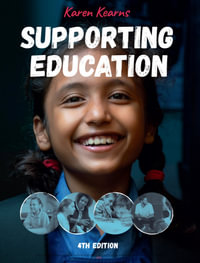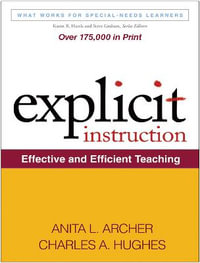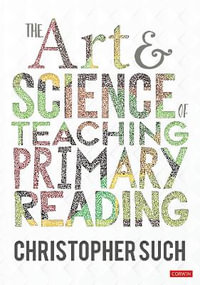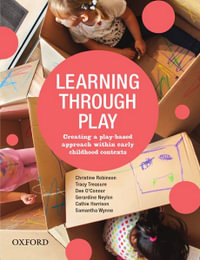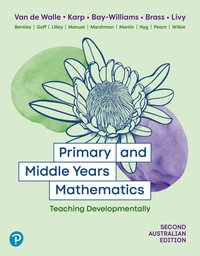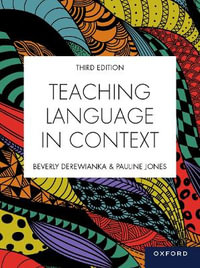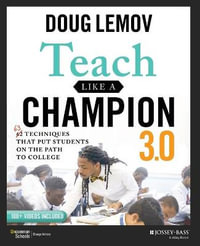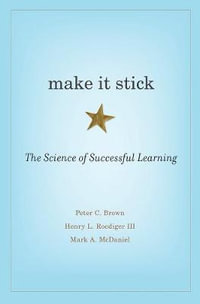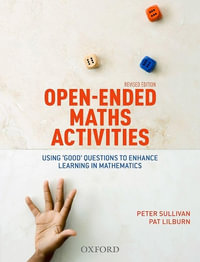
Introduction to Learning and Behavior
5th Edition
By: Russell A. Powell, Dr. Diane Symbaluk, P. Lynne Honey
Paperback | 6 February 2016 | Edition Number 5
At a Glance
New Edition
Paperback
$179.80
Aims to ship in 15 to 25 business days
When will this arrive by?
Enter delivery postcode to estimate
This edition includes a new emphasis on behavior self-management -- including an appendix on tactics of behavior self-management as well as "Study Tip" boxes advising students on a range of study behavior issues, from how to best read a textbook to the use of stimulus control procedures to increase concentration and reduce procrastination. Instructors who include self-management projects as a course assignment may particularly appreciate this material. As with past editions, numerous opportunities for review and self-testing help students maximize their understanding and retention.
New to this Edition
- A new appendix, "A Brief Guide to Behavior Self-Management," adds practical information to complement the more theoretical presentation of self-control in Chapter 10. This material should prove especially useful for students who are doing a behavior self-management project as a course assignment, as well as for students who personally struggle with such issues as procrastination.
- Related to the new appendix (and this edition's stronger emphasis on behavior self-management), a new "Study Tip" box in each chapter presents students with specific tips on how to improve their study behavior. The tip for Chapter 1, for example, provides advice on how best to study a textbook (something which many students have never been taught) using the 3R (read-recite-review) method of studying. This new material is supported by additional information on self-management and study tips that students can access online.
- Chapter 4, "Classical Conditioning: Basic Phenomena and Various Complexities," has been simplified to improve its accessibility to students. Material on pseudoconditioning and temporal conditioning has been moved to Chapter 3, "Elicited Behaviors and Classical Conditioning." In addition, the authors eliminated the discussion of external inhibition and consolidated the remaining conditioning procedures under the categories of extensions and limitations of conditioning.
- In Chapter 5, the "And Furthermore" box on Little Albert has been updated to include recent information on the discovery of Albert Barger as the person most likely to have been the infant in Watson and Rayner's (1920) famous experiment. Some students may have heard the recent claim that Little Albert was a neurologically impaired child named Douglas Merritte (whom Watson, in a severe breach of ethics, knowingly chose for the experiment), but this is now considered to be incorrect.
- Chapter 9, "Escape, Avoidance, and Punishment," now includes a description of approach-avoidance conflict -- a topic that students will likely find interesting given its relevance for understanding certain relationship issues.
- A brief description of Skinner's approach to verbal behavior, including mands and tacts, has been added to Chapter 11, "Observational Learning and Rule-Governed Behavior." This discussion helps to provide a framework for the subsequent discussion of rule-governed behavior, and introduces these concepts to students who may take additional courses in behavior analysis.
- A description of the Board Certification program in applied behavior analysis at the end of Chapter 1 alerts students to the growing number of career opportunities available in this field of study.
About the Author
Russell A. Powell
Dr. Russell Powell earned his Ph.D. in psychology under the late Frank Epling and David Pierce at the University of Alberta. As a long-standing faculty member at MacEwan University in Edmonton, Alberta, he has taught classes in learning and behavior for over 30 years using a variety of behaviorally inspired formats. He has published and conducted research in a wide range of areas, including operant conditioning, social psychology, sleep and dreams (especially nightmares), self-regulation, and history of psychology. Most recently, he helped identify the individual believed to have been Little Albert, the infant in whom Watson and Rayner (1920) attempted to condition a phobia of furry animals (American Psychologist; Powell, Digdon, Harris, and Smithson, 2014).
P. Lynne Honey
Lynne Honey - a self-described "evolutionary behaviorist" -- completed a Ph.D. in experimental psychology in Jeff Galef's lab at McMaster University, studying the role of social learning on alcohol consumption in rats. She has published a number of papers on this topic and considers social learning to be one of the most powerful adaptations available to our species and others. Dr. Honey joined the Department of Psychology at MacEwan University in 2003 because of its focus on teaching and student engagement. She currently conducts research on human social behavior in an evolutionary context, including studies of social dominance, and the influence of personality traits on social behaviors. She also studies the effectiveness of various teaching methods, including peer-review and various uses of technology for learning, and has won an award for innovation in teaching.
Diane G. Symbaluk
Diane Symbaluk received her Ph.D. in Sociology from the University of Alberta in 1997, with a specialization in criminology and social psychology. She joined MacEwan University in 1996 in order to pursue her joint passion for teaching and research mentorship. She has taught courses in a variety of areas including social psychology, criminology, statistics, and research methods. She is presently the faculty advisor for MacEwan University's Community-Based Sociology Project, a supervised student-led research program. Her extensive list of publications includes textbooks, journal articles, and more than forty pedagogical resources (e.g., study guides, test banks, instructor manuals, and online resources). A distinguished teaching award winner, Diane is currently conducting research on published student ratings of instruction and character strengths of award-winning instructors.
Industry Reviews
"The contents match my course goals exceptionally well, which is why I have used this text for many years. No content is insufficiently represented; none are superfluous. The book is both balanced and the right length. . . . The writing is clear, examples are useful, and the focus is behavioral and not some neuro-cognitive-behavioral hybrid. Several features are integrated into the chapters, making the text user-friendly."
"With each iteration, it seems to be more complete. . . . I very much like the somewhat informal writing style; I think that really resonates with the students (I know it resonates with me)."
ISBN: 9781305652941
ISBN-10: 1305652940
Series: Mindtap Course List
Published: 6th February 2016
Format: Paperback
Language: English
Number of Pages: 640
Audience: College, Tertiary and University
Publisher: Cengage Learning, Inc
Country of Publication: GB
Edition Number: 5
Edition Type: Revised
Dimensions (cm): 16.3 x 23.3 x 2.5
Weight (kg): 0.89
Shipping
| Standard Shipping | Express Shipping | |
|---|---|---|
| Metro postcodes: | $9.99 | $14.95 |
| Regional postcodes: | $9.99 | $14.95 |
| Rural postcodes: | $9.99 | $14.95 |
How to return your order
At Booktopia, we offer hassle-free returns in accordance with our returns policy. If you wish to return an item, please get in touch with Booktopia Customer Care.
Additional postage charges may be applicable.
Defective items
If there is a problem with any of the items received for your order then the Booktopia Customer Care team is ready to assist you.
For more info please visit our Help Centre.
You Can Find This Book In
This product is categorised by
- Non-FictionEducationTeaching Skills & Techniques
- Non-FictionSelf-Help, Personal Development & Practical Advice
- Non-FictionPsychologyCognition & Cognitive PsychologyLearning
- Non-FictionMedicineOther Branches of MedicineClinical Psychology
- Text BooksHigher Education & Vocational TextbooksSocial Sciences Higher Education Textbooks
- Text BooksHigher Education & Vocational TextbooksEducation Higher Education Textbooks



